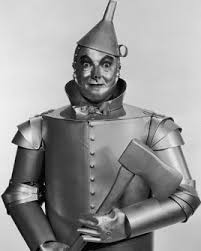 I realized that this is close to the five year anniversary of this blog. Despite typos, sloth, and various technical difficulties, I’ve managed to publish something at least once a week for this period. These last two weeks have been particularly busy, so I thought I’d include a few things from various categories, starting with a Monday poem one day late. Larry and I were talking about our friend Paul Tulley the other day–how strange it is that he’s been gone for almost 20 years. Larry mentioned that Paul once sent him an obituary for Jack Haley, who played the Tin Man in the Wizard of Oz, with a post-it attached that said: “RUST IN PEACE.”
I realized that this is close to the five year anniversary of this blog. Despite typos, sloth, and various technical difficulties, I’ve managed to publish something at least once a week for this period. These last two weeks have been particularly busy, so I thought I’d include a few things from various categories, starting with a Monday poem one day late. Larry and I were talking about our friend Paul Tulley the other day–how strange it is that he’s been gone for almost 20 years. Larry mentioned that Paul once sent him an obituary for Jack Haley, who played the Tin Man in the Wizard of Oz, with a post-it attached that said: “RUST IN PEACE.”
Poem for Paul
Lately, crows have been invading poems,
those hoi polloi birds, irascible and unashamed.
An eye for the mystic ordinary, Paul
knew the difference between crow
and raven—Most poem crows are ravens,
he might tell you, pointing out their size,
their heavy bill, their solitary strut.
While others scanned for kestrel
or for heron, Paul wondered about gulls,
their range and variations, their coziness
with all things human and the limitless,
inhuman sea. An underrated bird,
he might say.
For years in one small bedroom
where the sea could just be heard,
Paul held ongoing court for grownup
children, his beery Buddha’s smile
traveling with them,
Moscow, Moose Jaw, Lhasa,
back with an unusual rock or plastic wind-up
toy for Paul to slowly take in hand,
consider, and comment on.
His comment the reward
for the journey.
He wrote his poems on scraps
dropped in a coffee can
or sent on a card to a friend,
no copy kept, or lost
in the drifts layered
around his bed.
One of the rare ones
who knew that the writing
was everything.
What happens after
doesn’t matter. Continue reading “A miscellany” →
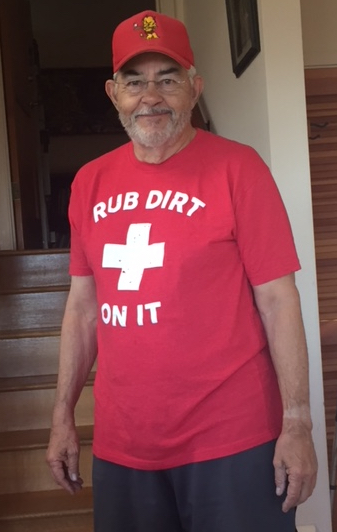 Since my last post, I had an encounter with a Jeep while riding my bike. It didn’t go too well for me, and I’ve been rendered pretty immobile with injuries to my right foot. Luckily, that’s all, and according to the amazing physicians at Highland Hospital, there will be “full functional recovery.” But the process is long and difficult.
Since my last post, I had an encounter with a Jeep while riding my bike. It didn’t go too well for me, and I’ve been rendered pretty immobile with injuries to my right foot. Luckily, that’s all, and according to the amazing physicians at Highland Hospital, there will be “full functional recovery.” But the process is long and difficult. One last comment on my
One last comment on my  I have a system for New Year’s resolutions that works well for me: Aim small and succeed. I’ve discussed this
I have a system for New Year’s resolutions that works well for me: Aim small and succeed. I’ve discussed this  “This is absolutely the best time for CPAs in my 35 year working career. I was in my 4th year when the 1986 tax act was passed. It presented many less opportunities – mostly due to a thoughtful, bi-partisan, nearly 13 month effort that ultimately passed 93-6 in the senate.
“This is absolutely the best time for CPAs in my 35 year working career. I was in my 4th year when the 1986 tax act was passed. It presented many less opportunities – mostly due to a thoughtful, bi-partisan, nearly 13 month effort that ultimately passed 93-6 in the senate. 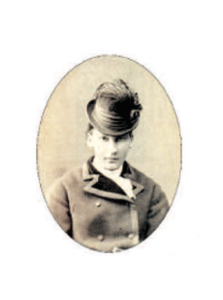
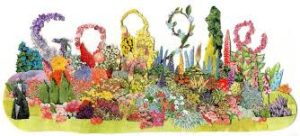 In case you didn’t happen to use Google today, they are honoring Gertrude Jekyll, famous British gardener of the late 19th, early 20th century. She is very quotable; here’s an example:
In case you didn’t happen to use Google today, they are honoring Gertrude Jekyll, famous British gardener of the late 19th, early 20th century. She is very quotable; here’s an example: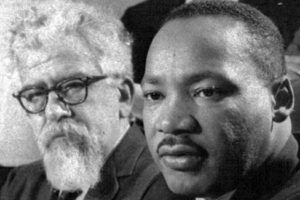 On a less earthy path to enlightenment, I have been reading Abraham Joshua Heschel, a Jewish religious leader born in Germany, who famously met and marched with Martin Luther King. This quote seems particularly apposite today:
On a less earthy path to enlightenment, I have been reading Abraham Joshua Heschel, a Jewish religious leader born in Germany, who famously met and marched with Martin Luther King. This quote seems particularly apposite today: 





